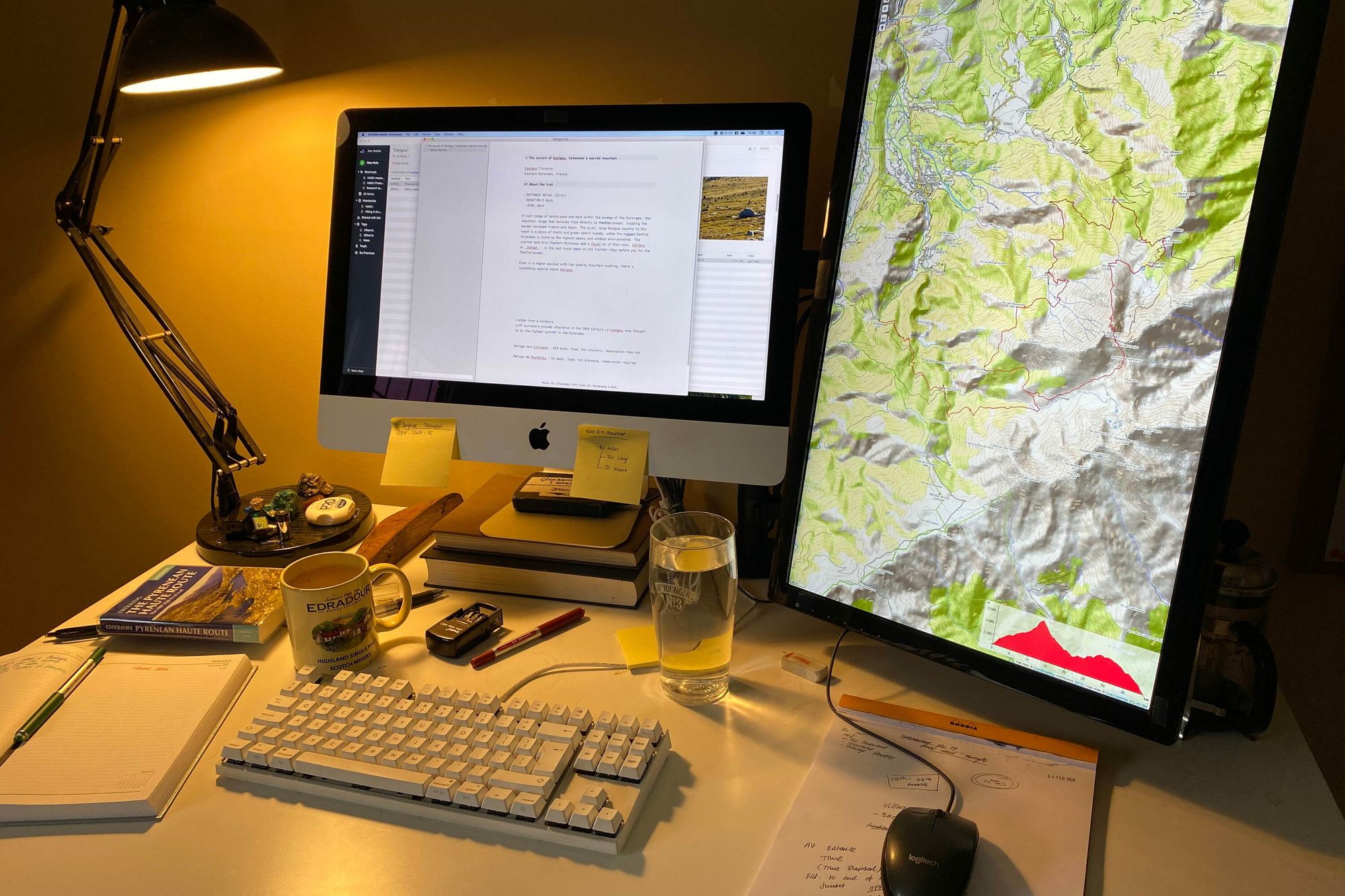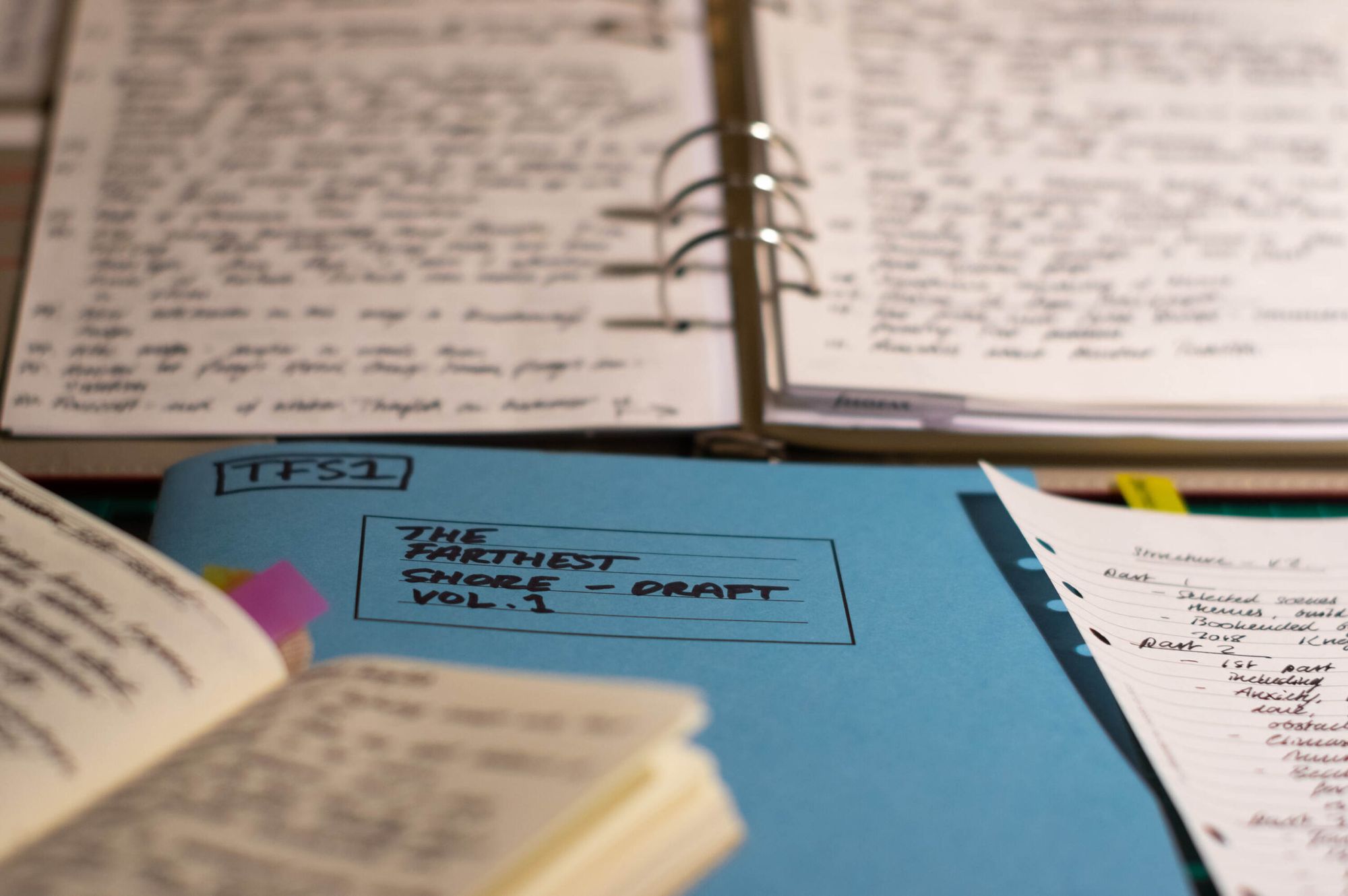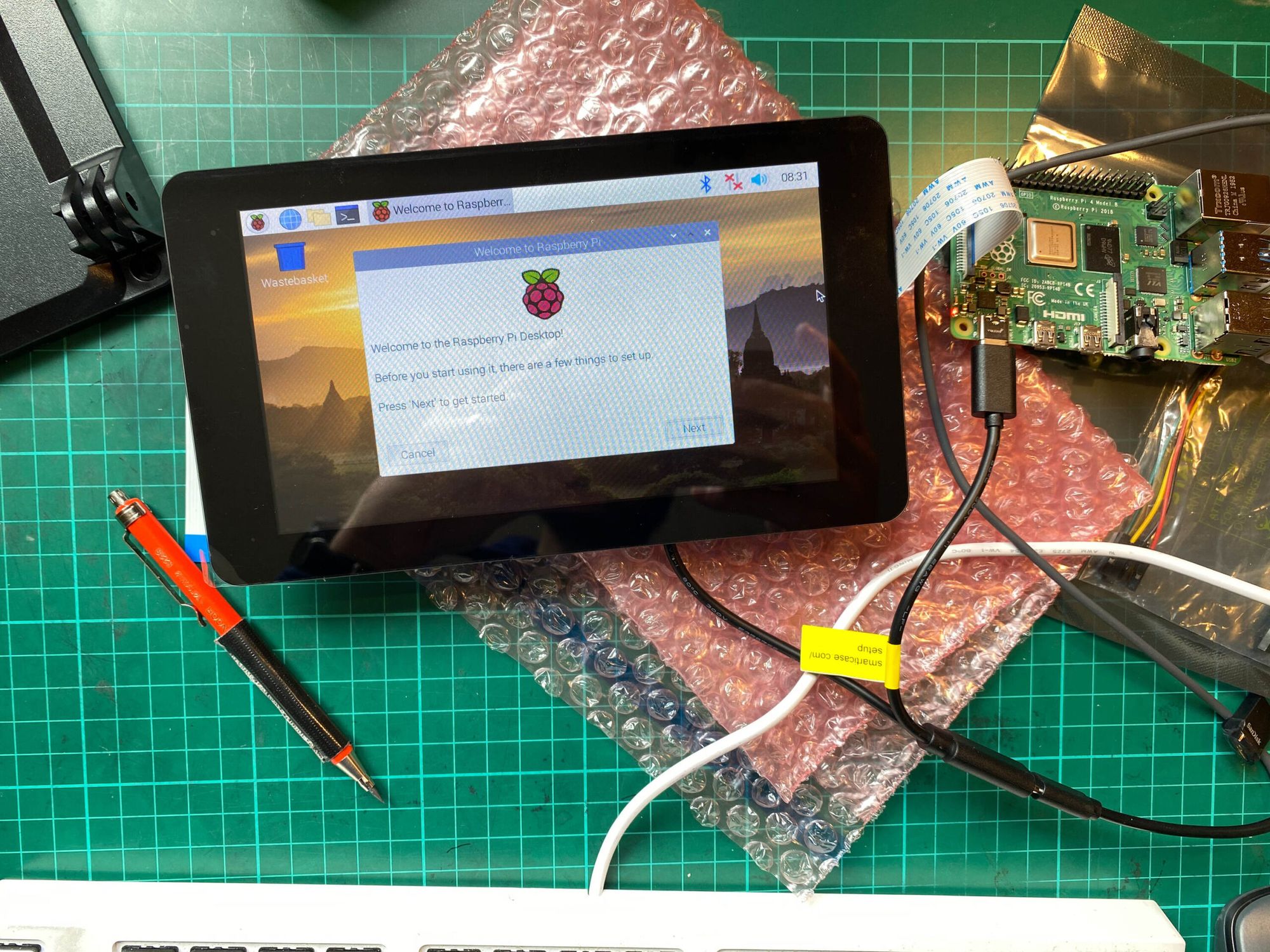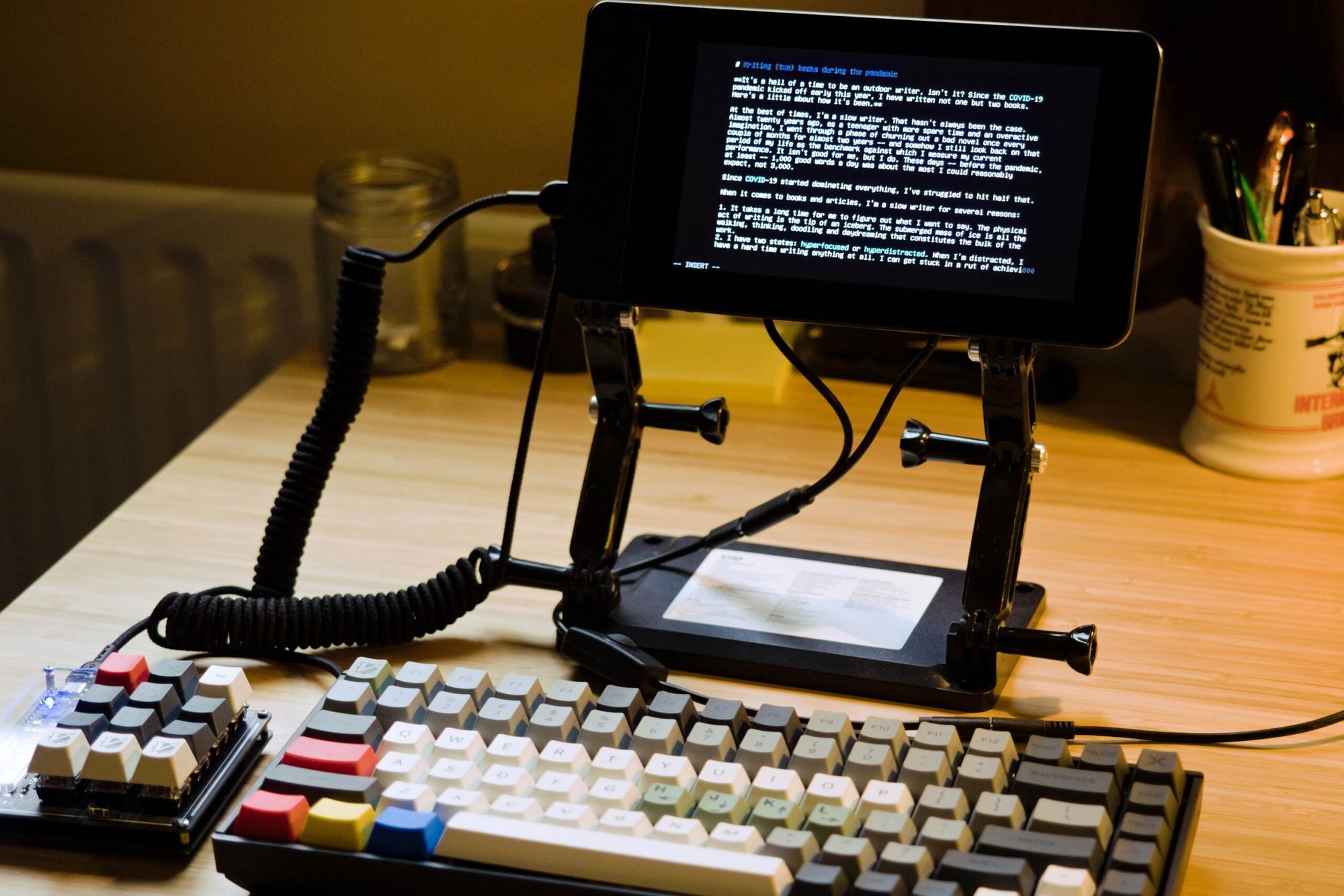Writing (two) books during the pandemic

It’s a hell of a time to be an outdoor writer, isn’t it? Since the COVID-19 pandemic kicked off early this year, I have written not one but two books. Here’s a little about how it’s been.
At the best of times, I’m a slow writer. That hasn’t always been the case. Almost twenty years ago, as a teenager with more spare time and an overactive imagination, I went through a phase of churning out a bad novel once every couple of months for almost two years — and somehow I still look back on that period of my life as the benchmark against which I measure my current performance. It isn’t good for me, but I do. These days — before the pandemic, at least — 1,000 good words a day was about the most I could reasonably expect.
Since COVID-19 started dominating everything, I’ve struggled to hit half that.
When it comes to books and articles, I’m a slow writer for several reasons:
- It takes a long time for me to figure out what I want to say. The physical act of writing is the tip of an iceberg. The submerged mass of ice is all the walking, thinking, doodling and daydreaming that forms the bulk of the work.
- I have two states: hyperfocused or hyperdistracted. When I’m distracted, I have a hard time writing anything at all. I can get stuck in a rut of achieving little for days. My distractions can be epic in scale, too — more on this later.
- There’s always other work that I could or should be doing.
Achieving hyperfocused flow has become significantly more difficult since the pandemic began. Partly that’s because distractions have proliferated; I’ve found it more difficult to keep away from online news, from the punishment/reward vortex that is Twitter, from everything. Partly it’s because a constant underlying sense of doom and anxiety is not good for creative work. I’ve seen it written many times that lockdown is the perfect opportunity to finally write that book, but I find this idea ridiculous. Writers don’t do their best work when they’re worrying about opportunities evaporating (and possibly have bored kids to look after on a 24/7 basis all of a sudden). They do their best work when they have time, space, financial freedom, and just the right amount of the right kind of pressure. These things, ever the domain of the privileged, have suddenly moved a lot further from reach for many people over the last few months.
We’re all in survival mode now. You try to be creative at gunpoint.
I’m well aware of my own privilege here — that I have had two commissioned books to work on, in addition to plenty of other work, in a period when many writers have seen all of their work disappear. Please don’t mistake this for a whine. I consider myself fortunate, but that doesn’t invalidate the fact that actually writing these books has been more of a struggle than I anticipated. On social media it may seem that I have everything together, that I’m a go-getting successful writer, but I want to tell people that this is less than half the story and that everyone is struggling at the moment.
Let’s take a look at the two projects.
Top-Secret Coffee-Table Book
There still isn’t that much I can reveal about this one, so apologies for being secretive. What I can reveal is that I was approached by a publisher last year to work as the main copywriter for a big, glossy coffee-table book about long-distance hiking, and it has occupied a huge amount of my time since the start of the year.
The work for this one was highly structured, with incremental deadlines and a formal structure for the work itself. This worked well for me. I knew exactly what I had to deliver for any given week, and I could break the week’s workload down into a stack of subtasks that I could then subdivide by day. There was no room for procrastination or distraction. I would look at my diary and know that I had to write precisely 500 words on a precise subject in a precise way.
This was the easiest book to write, but it certainly wasn’t easy. I had a lot of research to do in addition to the writing. One quirk was that the editorial team used Evernote for collaboration, project management, and submission of the work itself. I don’t like Evernote; I find it slow and clunky and bloated, and getting the work into Evernote added an extra layer of friction. However, it all worked in the end.
This book was also different in that it required the creation of a huge number of complex and detailed GPX files. I’m used to creating these for my long-distance hikes, and for the articles I send in to outdoor magazines, but this was on another level. These GPX files had to be created to exacting specifications, and I soon found myself looking for ways to make efficiencies. MapOut, running on an iPad, saved the day here — it was by far the most efficient way to create and manage a large library of complex GPX files. I would then transfer the file to the computer and open it in either OS Maps or OpenTopoMap for reference while writing.

As always, the work itself was written in Markdown, a lightweight and human-readable form of markup language for plain text. I mostly used BBEdit and MultiMarkdown Composer for writing the text. The beauty of Markdown is that it’s app-agnostic and portable. To translate Markdown to the rich text needed for pasting into Evernote, I used pandoc.
The Farthest Shore
This is my labour of love: my book about hiking the Cape Wrath Trail in winter, my inevitable book, the book I couldn’t not write. I signed a deal with Vertebrate Publishing in October 2019 and have been working on it ever since.
My original plan was to finish the first draft in April, then take plenty of time revising and polishing before the submission deadline at the end of August. Unfortunately the pandemic threw that plan out of the window. I consistently missed my own targets.
| MONTH | WORDS |
|---|---|
| 2019-11 | 4,822 |
| 2019-12 | 8,126 |
| 2020-01 | 9,133 |
| 2020-02 | 6,251 |
| 2020-03 | 5,106 |
| 2020-04 | 8,874 |
| 2020-05 | 10,240 |
| 2020-06 | 9,686 |
| 2020-07 | 11,559 |
| TOTAL | 73,797 |
Here’s how I actually did.
I experimented with writing first thing in the morning, but eventually settled into a 17.00-19.00 groove, after I’d finished the rest of my work for the day. Sometimes this worked well and I was able to get into my flow after only a few minutes. More often I’d get almost nothing done until after 18.00. It didn’t exactly feel as if I had writer’s block, but there was considerable resistance.
I’ve always found it difficult to work on a book-length project when I have other stuff on, and this time was no different. I was working on Top-Secret Coffee-Table Book at the same time (which required a huge amount of focus and discipline), I always had at least one big editorial project on the go, and I’ve written at least a dozen magazine articles during this period. But I don’t have the luxury of being able to drop everything and focus 100 per cent on a book manuscript, because I’m not independently wealthy and I have to make ends meet. This is the reality for most writers. Writing happens in the gaps, in the corners, wherever we can fit it in. If we wait for inspiration then nothing will ever get written. Writing can come in a glorious flood of words or it can feel like flogging a dead horse.
But, of course, me being me, I didn’t make things easy for myself either.
Distractions
I have a terrible habit of fiddling with my tools. When I started writing The Farthest Shore, I told myself that this would be a pen-and-paper project. This felt right, as my rough pre-draft was a handwritten journal scrawled in a notebook on the trail itself.

I planned the project on paper and started writing it in exercise books. This felt wonderfully slow and deliberate, and (as with all writing by hand) it really helped me to focus and find the right words, but I got to the point where I realised that it was too slow, that I was falling behind. So I started composing directly on the keyboard.
Looking at the stats in the table above, it’s clear that this didn’t significantly speed up my work in real terms. What it did do was open the door to a new method of procrastination: writing apps and hardware. During the period in which I’ve been working on the first draft, I’ve experimented with Scrivener and Ulysses again (for the nth time in the last ten years), written entire chapters on an iPad with external keyboard, played around with an Alphasmart Neo, gone back to my faithful combo of BBEdit and MultiMarkdown Composer on the Mac, switched to Visual Studio Code on Windows for a while, and then finally spent several weeks relearning Vim, which I last used for programming back in my university days. I also disappeared down a Linux rabbit hole. I built a minimalist Raspberry Pi writing deck, bought a new mechanical keyboard, constructed a macropad for Vim commands, and ended up using Regolith Linux on my main computer full time.

Needless to say, all of this was completely unnecessary. Although I’m enjoying Linux, and am staying with Vim for now as my writing tool of choice, I could have achieved exactly the same results by sticking with macOS and BBEdit. Writing tools don’t matter. Fiddling with them is a common enough geeky kind of procrastination, but soldering your own Vim macropad and writing half a book directly in the Unix console is Jedi Master-level procrastination. Guilty, m’lud.
Overall, though, switching from handwriting back to writing the first draft directly on a computer was a good move. While I love writing by hand, and it has the potential to craft better writing if I have enough time, it also needs more editing and refinement afterwards. If I compose directly on the keyboard it tends to be closer to the finished product, possibly because I edit professionally on a screen. In an ideal world I’d prefer to write everything by hand and then go through three or four revisions afterwards, but here in messy reality I’ve gravitated back towards Vim and a mechanical keyboard as my preferred medium when it comes to getting my thoughts down in .md.

Next steps
Right now, I’ve completed all work on Top-Secret Coffee-Table Book, and it is due to be published next month. I will be at liberty to announce more when the book is on sale. I’m really excited about this one — and nervous, too. In some respects it feels very much like a book from before the pandemic, and I’m not sure how it fits into our new reality. There were inevitably compromises, too, because this was not my project — I was a hired writer producing work to a brief. Overall, though, I am proud to put my name to it.
I am about halfway through the revision of The Farthest Shore. I’ve been able to axe around 4,000 words from the total word count so far, which is a good sign, although reading it through has reinforced my belief that this manuscript contains some of the most personally meaningful writing I have ever created. That scares me. This one will be published in 2021. I hope readers find it as meaningful as I do.
Alex Roddie Newsletter
Join the newsletter to receive the latest updates in your inbox.



